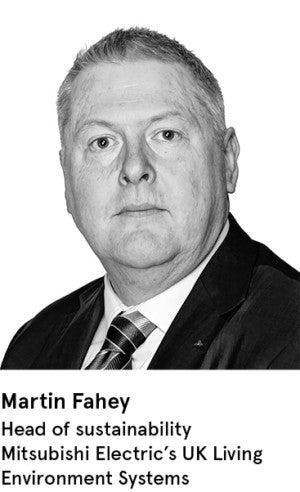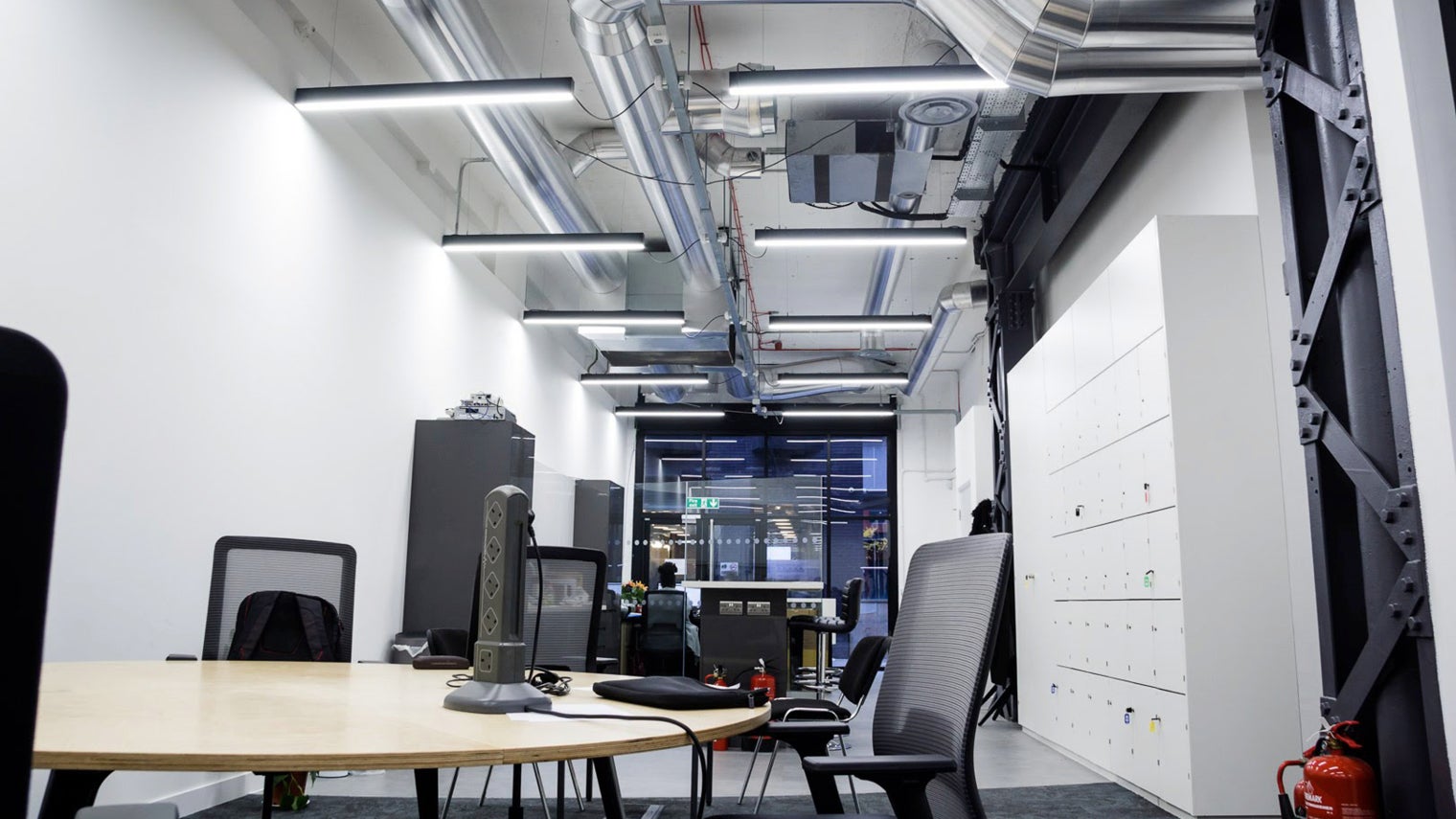 When it comes to the future of energy, buildings are both a bad news headline and a good news story. They are responsible for 40 per cent of EU energy consumption and 36 per cent of CO2 emissions. According to the European Commission, though, energy efficiency could cut both impacts by at least 5 per cent.
When it comes to the future of energy, buildings are both a bad news headline and a good news story. They are responsible for 40 per cent of EU energy consumption and 36 per cent of CO2 emissions. According to the European Commission, though, energy efficiency could cut both impacts by at least 5 per cent.
On average, older properties consume five times more energy, with about 35 per cent of EU buildings now over 50. This ageing and evolving building stock brings with it a multiplicity of design, specification and installation challenges.
We need to demystify and derisk the idea of sustainability to convince clients that cutting energy and carbon is not only doable, but is actually being done – the solutions and skills already exist
Availability of proven energy-saving and carbon-cutting tech, however, makes rising to those challenges an everyday reality, says Martin Fahey, head of sustainability at Mitsubishi Electric’s UK Living Environment Systems. “Addressing climate-resilience concerns by adopting sustainable solutions and adapting our built environment is actually not that difficult, in principle,” he says. “It is an opportunity waiting to be seized.”
For the UK to achieve an 80 per cent cut in emissions by 2050, making buildings a better fit for the future is a must. Moreover, with 18 per cent of UK commercial stock falling into bands F and G for Energy Performance Certificates, almost one in five properties risk becoming illegal to rent on the arrival of the Minimum Energy Efficiency Standard (MEES) in 2018.
The business imperative is, therefore, clear and Mitsubishi Electric has been busy helping developers and owners seize opportunities in buildings, new and old, big and small, from a refurbished hotel and charity HQ, to County Hall on London’s South Bank.
From derelict shell to prestigious venue
Once the historic headquarters of the Greater London Council, County Hall is a listed London landmark on the River Thames, sat across from Big Ben and the Houses of Parliament.
Fast-forward to 2017 and the majority of its third and entire fourth floor were transformed to provide 68,000 square feet of 21st-century conference and meeting spaces for etc.venues.
In a building dating back to 1922, the new areas boast all the advantages of modern heating, ventilation and air-conditioning system, designed, installed and commissioned by Cool Systems Holdings, manufactured and supplied by Mitsubishi Electric.
Sympathetic restoration meant working around listed elements and energy-efficient comfort has been guaranteed through the use of seven outdoor condensing units on the roof, delivering simultaneous heating and cooling to 72 fan-coil units. Air handling and mechanical ventilation with heat recovery also provides fresh air to the conference suites, while recovering up to 80 per cent of otherwise wasted energy.
Enhancing the brand
Another recent refurbishment that has delivered high-value energy efficiency, combined with first-class comfort, is the upgrade to the Fox & Goose Hotel, near Hanger Lane in Ealing.
The 73-bedroom hotel, run by Fuller, Smith & Turner plc, was built in 1997 and extended in 2000. With the existing air conditioning reaching the end of its useful working life, Fuller’s approached Mitsubishi Electric to ask for a recommended contractor.
“We spoke to Turn Key Air Conditioning and they came up with a proposal that allowed us to upgrade to new, energy-efficient heat recovery air conditioning without the loss of any bedrooms throughout the works,” says Tony Hogan, senior property surveyor for Fuller’s.
“For a working hotel this was an essential requirement, which allowed our management team to continue providing the very best comfort for our guests, while enabling us to future-proof the building and gain even better control of energy use.”
Turn Key offered a full design, supply, installation and maintenance solution to provide Fuller’s with complete assurance throughout the refurbishment work as sales manager Mitch Swirles explains: “As a Diamond Quality Partner (DQP), we have reached the highest level of partnership with Mitsubishi Electric which allows us to offer longer warranties.
“This DQP status is also a proven demonstration that our work matches the high quality of manufacturing so Fuller’s know they are going to get the best out of the system throughout its working life.”
This long-term assurance is vital to businesses such as Fuller’s that need surety the investment in modern, energy-efficient equipment will increase guest comfort, while enabling increased centralised control and energy reporting.
“At Fuller’s we take our responsibilities to our clients, our staff and our brand very seriously,” says Mr Hogan. “Working closely with both the manufacturer and one of their most trusted suppliers enables us to tick all the right boxes.”
Size is not an issue
Catering principally for the needs of staff, rather than guests, refurbishment of the London offices of Locality also gave the network of community-led organisations opportunity to provide a more comfortable, energy-efficient environment.

The upgrade of Locality’s Shoreditch offices shows how any sized building can benefit from energy efficiency
The upgrade to its Shoreditch building necessitated use by installation contractor 361 Degrees of different air-conditioning and ventilation solutions on all three floors. Diverse layouts and requirements ranged from high ceilings and exposed ductwork, through a separate meeting pod and suspended ceilings, to new designs for retention of natural light. Thanks to the versatility of the Mitsubishi Electric offering, Locality now has a light, airy and comfortable office facility that delivers energy, carbon and cost-savings for the charity.
A 2016 exemplar project at the London home of the UK Green Building Council (UK-GBC) also saw Mitsubishi Electric contribute to the achievement of the lowest embodied carbon footprint ever recorded for an office refurbishment in the UK. Such ambition, not just on the part of clients, but the construction industry as a whole, is driving forward the green agenda, says Cat Hirst, director of learning and innovation at UK-GBC.
“There is a real business case for sustainability, which is increasingly getting proven, at both organisation and building-project level,” she says. “We are seeing amazing examples
of leadership.”
As a member of UK-GBC, Mitsubishi Electric is working hard to help “sell” sustainability into mainstream built-environment markets. It is important to get the message out there that deliverability is not an issue. Mr Fahey concludes: “We need to demystify and derisk the idea of sustainability to convince clients that cutting energy and carbon is not only doable, but is actually being done – the solutions and skills already exist.”
Mitsubishi Electric UK Living Environment Systems regularly appears in the SustMeme Top 500 Built Environment ranking, published by Jim McClelland every Monday @SustMeme.
The company can be followed on Twitter @meuk_les and publishes useful articles on legislation such as MEES on its blogsite http://thehub.mitsubishielectric.co.uk

We need to demystify and derisk the idea of sustainability to convince clients that cutting energy and carbon is not only doable, but is actually being done – the solutions and skills already exist




